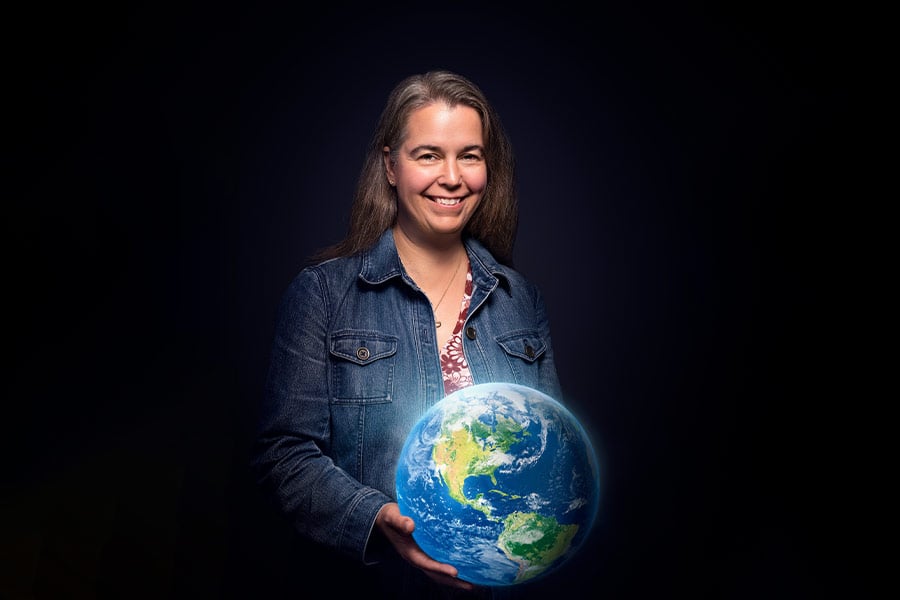A world of good: Part 3 - stewards of God's creation

Emily Breclaw, outdoor learning specialist, Nolan Catholic High School (NTC/Juan Guajardo)
Dr. Natalie Hubbard was excited about the opportunity to integrate her Catholic faith into her life science lessons when she joined the Nolan Catholic High School faculty in 2007.
She uses available resources including “a good, faithful community; good science; a great property.” This year, she’s added a “piece from the pope” — Pope Francis’ 2015 encyclical “Laudato Si: On care for our common home.”
Hubbard and Emily Breclaw, outdoor learning specialist at Nolan, collaborate on biweekly lessons for honors or Advanced Placement biology students on the encyclical, which expounds upon the care of creation and the use of resources.
The students read the document, observe nature, and participate in lively classroom discussions about the material.
Hubbard noted that the issue “is important for the Church. It’s not a political thing.” Pope Francis, Pope Benedict XVI, and St. John Paul II spoke and wrote about respecting creation, she said, and she expects future popes will also.
Breclaw hopes that by reading Laudato Si, the students “learn to look at things differently…thinking ‘What can I do in my sphere of influence? How can I be a better steward with my friends and family and in my own place?’ rather than having the goal of ‘I need to change the whole world.’”
Hubbard added, “It’s our responsibility to be caretakers of what God has given us. We’re helping them think about, ‘What can you do, even individually?’”

The teachers have been impressed with the students’ level of interest, application of critical thinking, and realization that their generation will be charged with solving problems created by misuse or misallocation of environmental resources.
Julianna Broadway, a junior in AP biology, finds the challenges posed by Pope Francis in Laudato Si a little frightening, but mostly hopeful.
“Every generation has their problem they have to solve,” she said, citing slavery and woman’s suffrage, among others. “My generation’s thing we have to solve will be the environment.”
Freshman Betsy Weber, an honors biology student, was surprised to find “relatable writing” in the Vatican document.
In an observation, she reflected on being part of a larger natural world. “God didn’t create everything just for beauty’s sake, but for a purpose, and whenever I see a creature as simple as a lizard, living out the purpose that was blessed upon him by God. I am then reminded of the various and numerous purposes that us as humans (and I myself) have been born into this world to do.”
Although much of the encyclical still lies ahead, Hubbard and Breclaw are pleased with the students’ progress so far. Hubbard said, “What does Laudato Si matter if it’s not inspiring thought?”
